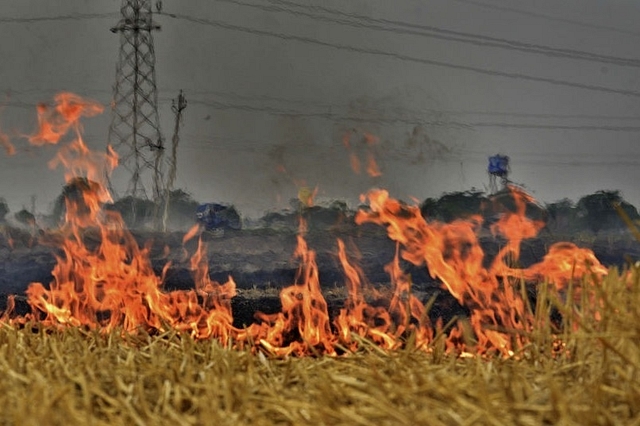
Stubble Burning Incidents Down By 41 Per Cent, Zero Instances In Over 4500 Villages In Punjab And Haryana In 2018
Pollution in Delhi and its surrounding areas has been majorly attributed to the stubble burning by farmers in its neighbouring states Punjab, Haryana and Uttar Pradesh. Seeking to remedy the dire condition of air in the Indian capital the Central and state governments had embarked upon several initiatives to cut down such incidents.
The efforts have now borne fruits as the number of instances of stubble burning in Punjab and Haryana were down by 41 per cent as compared with 2016, a press release by the Ministry of Agriculture & Farmers Welfare has said.
More than 4500 villages in Punjab and Haryana were also declared as Zero Stubble Burning Villages during 2018 as not a single crop burning incident was reported from these villages during the year.
A Central Sector Scheme was launched by the Government of India with a total outgo of Rs 1151.80 crores for the period from 2018-19 to 2019-20 to tackle the issue of stubble burning in the North- Western States of India. In accordance with the scheme, zero tillage technology was adopted in 8 lakh hectares of land in the region.
The scheme had been implemented by the Indian Council of Agricultural Research (ICAR) in the states through numerous Krishi Vigyan Kendras, along with awareness campaigns being conducted throughout the areas where stubble burning was prevalent. More than 400 hands-on training were organized and 18,000 farmers, tractor owner and machine operators were trained.